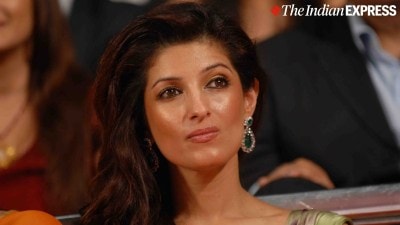The Right Turn
If you are not a communist before 30, they say, you have no heart, and if you are a communist after 30 you have no head. In the West, there ...

If you are not a communist before 30, they say, you have no heart, and if you are a communist after 30 you have no head. In the West, there is an army of intellectuals who can boast of both heart and head. Not so in India.
Many BJP leaders were astounded that a former communist, Sudheendra Kulkarni, could be as close to BJP party president L.K. Advani as he was once to former PM Atal Bihari Vajpayee. The reason is that in our country there are hardly any leftists who see the light of reason and common sense and, therefore, turn rightwards. The few conversions that take place are primarily because of political and pecuniary factors rather than ideological considerations, and, in any case, these conversions fail to impress public discourse, which continues to be carried out in an essentially leftist idiom. The result is that the neo-right-winger in India is not fired by the zeal of the new convert; rather, he suffers from the guilt of the turncoat.
It8217;s different in the West. In the West, communist-turned-conservatives not only abound, they are also important participants in public discourse. They played a key role in heralding the Reagan-Thatcher revolution of the 1980s; the conservative revolution continues under George W. Bush. Arguably, the most prominent among them is Irving Kristol, the first neo-conservative whose ideological and biological progeny set the agenda for Washington. A former Trotskyite, he is a profound thinker and a prolific writer. His views would be considered reactionary in India. For instance, he recently wrote that 8216;8216;a secular state cannot prosper-indeed, cannot survive-in an entirely secular society. Families and churches are the two institutions that make for inter-generational stability.8217;8217;
Another conservative icon is Paul Johnson, a Briton. One of the most important living historians, he was once a leftist. Later, he became one of the staunchest critics of communism. His book, Modern Times, a history of the 20th century, begins with a description of and an attack on moral relativism. He hailed the Reagan-Thatcher era as one in which the 8216;8216;recovery of freedom8217;8217; became possible.
The story of Whitaker Chambers is even more dramatic. A former Communist Party member and Time magazine senior editor, he became famous or infamous, from the liberal point of view because of his testimony in the 1950 Alger Hiss trial, which heralded the age of McCarthyism. Chambers became an aggressive anti-communist.
David Horowitz8217;s journey from the left to the right has been equally dramatic. Hailed as 8216;8216;one of the great thinkers on the American scene today,8217;8217; his new book Left Illusions delineates his defection to conservatism. Reflecting on his adolescent days, he told an interviewer that he thought that he had the wisdom to instruct President Harry Truman. A variety of factors 8212; the rigidity and dogmatism of communism, the continuous reports of killings in communist countries 80 to 100 million dead, the failure of command economy all over the world, and the unprecedented prosperity created by capitalism-brought leftists and many liberals in touch with the real world. Kristol famously said that a neo-conservative is the liberal who got 8216;8216;mugged by reality8217;8217;; the same was true for the leftist.
In India, however, the liberal and the leftist have fortified themselves in the ivory towers of political correctness and socialist rhetoric. They frown upon the very idea of an excursion, even a forced one, into the real world. Those who have to accept the inexorable logic of capitalism 8212; which is the only humane system mankind has ever witnessed 8212; do so diffidently and apologetically. An illustration: Bimal Jalan, a leading liberaliser, who has held almost every office an economist can dream of holding, justified economic reforms in his book in 1996 by saying that such reforms are 8216;8216;consistent with our socialist ideals8217;8217;!
Even the few who turn rightwards find it prudent to follow the left-liberal consensus, rather than challenge it. If the reports about Kulkarni8217;s influence over Advani have even an iota of credibility, his effort was to make the BJP leader consistent with the consensus. While in the West the ideological defector challenges the liberal consensus, his Indian counterpart is happy following the canons of conventional wisdom. This keeps the Indian intellectual shielded from the assaults of reality.
The writer, a business journalist, is at: raviskapoorgmail.com
- 01
- 02
- 03
- 04
- 05































